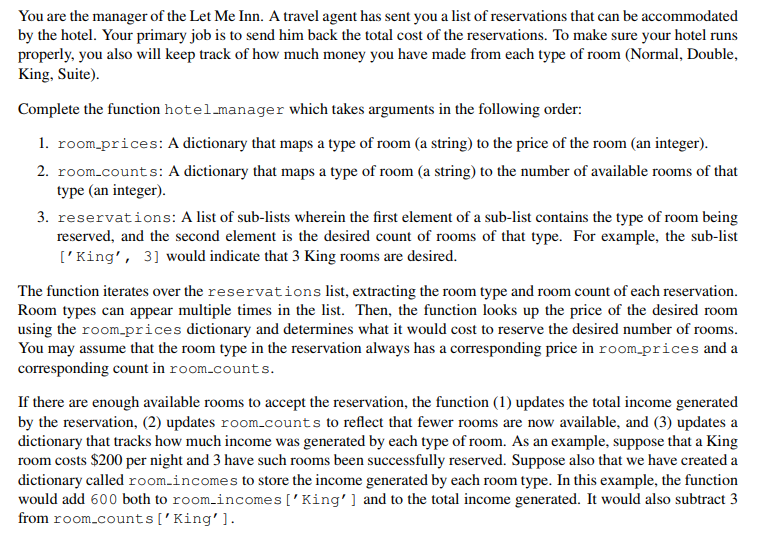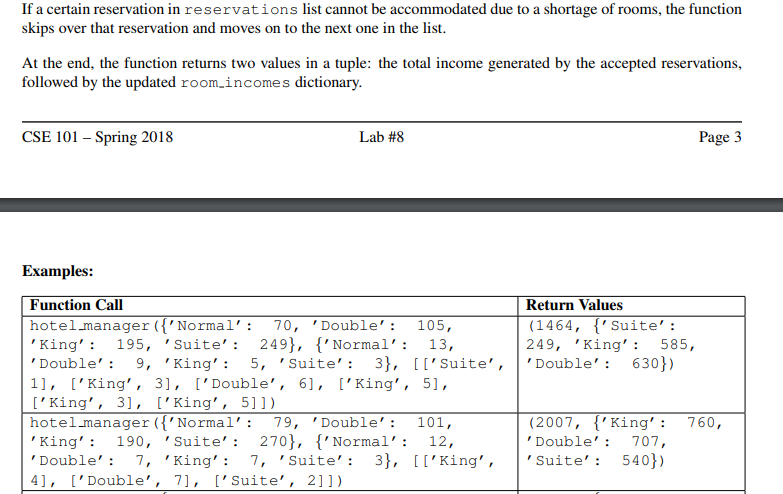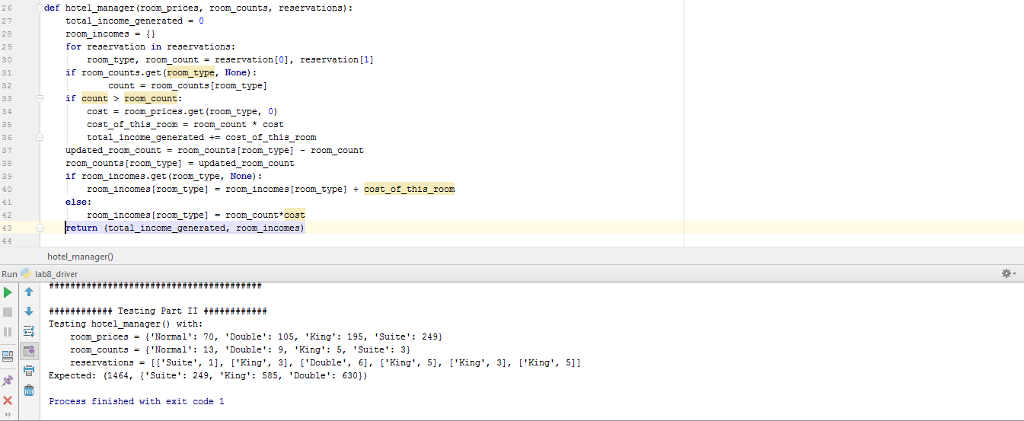Answered step by step
Verified Expert Solution
Question
1 Approved Answer
python language, practice with dictionaries and lists i had asked this question previously and this is the answer that someone gave me, which is not
python language, practice with dictionaries and lists


i had asked this question previously and this is the answer that someone gave me, which is not working. they added "class letmeinn(object)" before the function but i cannont change or add anything to the given function which is "def hotel_manager(room_prices,room_counts,reservations):"
this is the code below that was given and is not working:

Step by Step Solution
There are 3 Steps involved in it
Step: 1

Get Instant Access to Expert-Tailored Solutions
See step-by-step solutions with expert insights and AI powered tools for academic success
Step: 2

Step: 3

Ace Your Homework with AI
Get the answers you need in no time with our AI-driven, step-by-step assistance
Get Started


